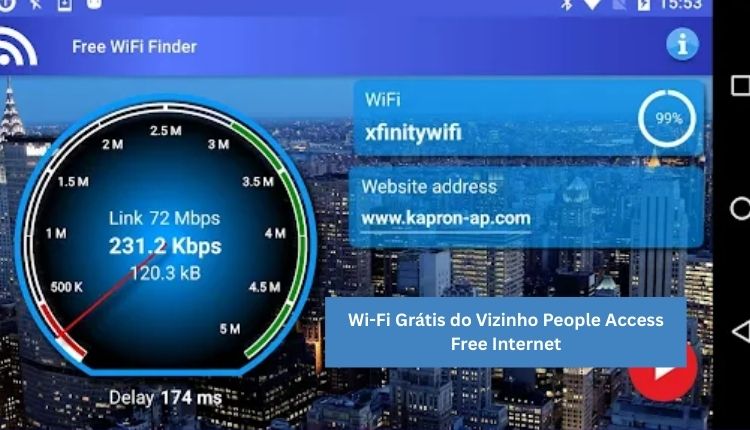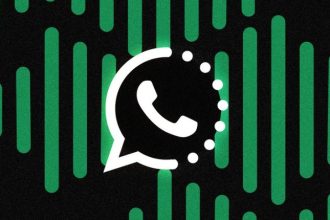However, not everyone has the means to pay for Wi-Fi Grátis do Vizinho at home. This has led to a growing phenomenon in certain areas where people are looking for alternatives, such as connecting to a neighborhood Wi-Fi network without permission. This practice, which is commonly referred to as Wi-Fi, raises technical, ethical, and legal issues that are worth exploring.
Understanding Wi-Fi Grátis do Vizinho
Wi-Fi literally translates into Wi-Fi Grátis do Vizinho from Portuguese, meaning “neighboring free Wi-Fi”. It usually concerns situations where individuals try to connect to nearby networks that are either unsecured or slightly protected.
The appeal is obvious: access to high-speed Internet without burdening monthly accounts. Some users rely on open networks in housing complexes, while others can use different tools to circumvent security settings in secure networks.
Methods of access to the Wi-Fi neighborhood
There are several ways people try to access the Wi-Fi Grátis do Vizinho. Some simply look for networks that do not require a slogan, which often occur in cafes or public areas, but sometimes they may belong to a residential neighbour.
Others use more advanced methods, such as guessing default passwords or using weak encryption protocols such as WEP. Some applications and devices can detect Wi-Fi signals with stronger signals and automatically try to connect. Although these methods may seem harmless to some, they include risks and potential legal violations.
Legal consideration
Accessing Wi-Fi Grátis do Vizinho permission is considered illegal in many countries. Laws differ, but unauthorised access to private networks is often treated similarly to theft or the use of services.
Legal consequences may include fines or even criminal charges in serious cases. Awareness of local laws is necessary before attempting any form of connection with the network you do not own or have an explicit permit for use of.
Ethical consequences
In addition to legality, ethical considerations play an important role in the discussion of Wi-Fi Grátis do Vizinho, Vizinho. Using someone else’s Internet without permission can be considered a violation of trust and privacy.
Although the network owner appears to be unaffected, unauthorized use may result in slower speeds, increased data utilization, and potential exposure to liability if illegal activities are conducted on the network. Respecting digital property rights is in line with wider social norms and digital labels.
Technological challenges
An attempt to connect to a Wi-Fi Grátis do Vizinho can represent numerous technical obstacles. Many modern routers use robust security protocols such as WPA3, making it difficult to unauthorized access.
Although the connection is bound, the signal strength can be weak or inconsistent, which limits the usability of the Internet. In addition, network owners often monitor unknown devices that can cause notifications or automatic disconnection.
Risks involved
Wi-Fi Grátis do Vizinho with someone else exposes users to more risks. Owners of harmful networks could track activity or introduce malware by unauthorized devices. There is also a possibility of legal consequences if the network owner reports suspicious activities. On the user’s side, it can rely on the network of neighbours to create instability depending on the Internet, such as work, streaming or communication, leading to frustration and inefficiency.
Alternatives to Wi-Fi Grátis do Vizinho
For those looking for cost-effective Internet access, there are legal and safer alternatives. Many cities offer free public Wi-Fi Grátis do Vizinho, libraries, and community centres. Mobile data plans with affordable packages are increasingly available, and some Internet service providers provide low-income programmes. Household Internet sharing or establishing community networks are other options that maintain legality and ethical integrity.
Impact on network owners
Wi-Fi owners can experience reduced performance and increased data use if the neighbours connect without permission. In some cases, unauthorised access can compromise sensitive information stored on connected devices. As preventive measures, the owners are encouraged to secure their networks with strong passwords, use encryption and regularly monitor connected devices. Being proactive helps maintain safety and quality of services.
Future free of charge Wi-Fi
Given that digital connectivity remains necessary, the idea of Wi-Fi Grátis do Vizinho will develop. Some communities are exploring shared Internet programmes or municipal networks that provide legal internet to residents. Technological advances such as network networks and secure hotspots also offer potential for safe and reliable connection. The aim of these innovations is to balance access with safety and ethical standards, which reduces motivation for unauthorized connections.
Conclusion
The Wi-Fi Grátis do Vizinho emphasizes the comprehensive penetration of technology, law and ethics. While temptation to access a neighbor network without payment can be strong, risks and consequences are significant. The legal consequences, ethical concerns and technical challenges cause unauthorized access to not be allowed.
Exploring legitimate alternatives ensures reliable connectivity while maintaining respect for digital ownership and trust in the community. Since the company is proceeding towards greater connectivity, safe and legal possibilities for free or cheap Internet will continue to expand.
Frequently asked questions
What does wi-fi wirate mean visinho?
It translates to “Wi-Fi Grátis do Vizinho” and refers to using someone else’s Internet connection without permission.
Is it legal to use neighbouring Wi-Fi?
In most countries, access to a private Wi-Fi network is unlawful and can lead to fines or criminal accusations.
What are the risks of connecting with a Wi-Fi neighbor?
Risks include legal difficulties, slower Internet speeds, potential exposure to malware, and network monitoring by the owner.
Are there safer alternatives for free Internet access?
Yes, options include public Wi-Fi in libraries and parks, affordable mobile data plans and community Internet programs.
How can network owners protect their Wi-Fi?
Owners should use strong passwords, enable encryption, monitor connected devices, and regularly update their router firmware to prevent unauthorized access.









